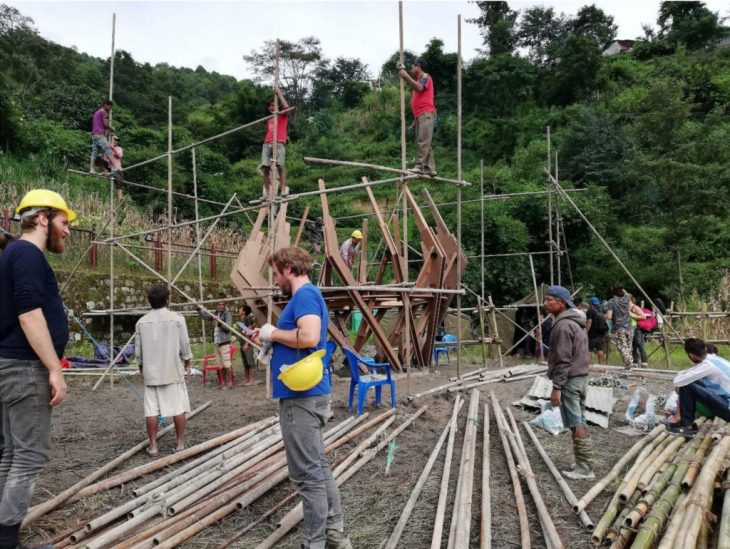DATA INFORMED STRUCTURES
Senior Faculty: Manja van de Worp
Faculty: Raimund Krenmueller
 Photo Credits: Manja van de Worp
Photo Credits: Manja van de Worp
Based on the previous edition of the seminar and the workshop held in Nepal in September 2019, seminar aims to develop the design of a mountain lodge for extreme climates, called the NEST (NepalEcoSocialTourism). There is the option to construct a full scale prototype during a 2-week workshop in Nepal in Summer 2020 (TBC). The first one was built in 2019 just outside of Kathmandu, and is in many aspects experimental.
For the 2.0 the aim is to:
? bring the product closer to a prototype which can be deployed in many places over the world as part of the clients request for an off-grid accommodation, with NEST 2.0 to be built in Ngawal (Annapurna Mountains, Nepal, 4000m a.s.l.).
? Improve the design and learn from the existing one: what can be standard – and what needs to be bespoke, and what does adaptation to different locations / materials and climates mean to the design.
? Develop aspects of the building that are not yet tackled in the previous seminar: Interior, Energy, Openings, Design Variations, Fabrication Logics, and special detailing
? Local knowledge of materials, tolerances, flexibility of design and skin etc. need to be developed further – there is a lot to learn from the first one.
? Embed more clearly information for construction directly on the building parts (as opposed to external documents like plans or files).
The NEST provides a space of approximately 20m2 and can accommodate 2 to 4 people. The construction system used will be designed in such a way, that it can be easily adjusted to create other building types, and is extendable for future additions (e.g. a hotel reception). The remoteness of the location requires a non-motorised transportation to site and an appropriate assembly protocol, as well as the use of local and environmentally friendly materials. Furthermore, the extreme climatic conditions will be a central consideration in the design. During the course students will design a wooden structure, invent a building envelope, develop off grid performance and rapid construction methodologies linked to remote location and transportable materials. Prototypes of the system and skin will be produced during the seminar, the final construction will be connected to an optional onsite workshop in Summer 2020 (TBC).